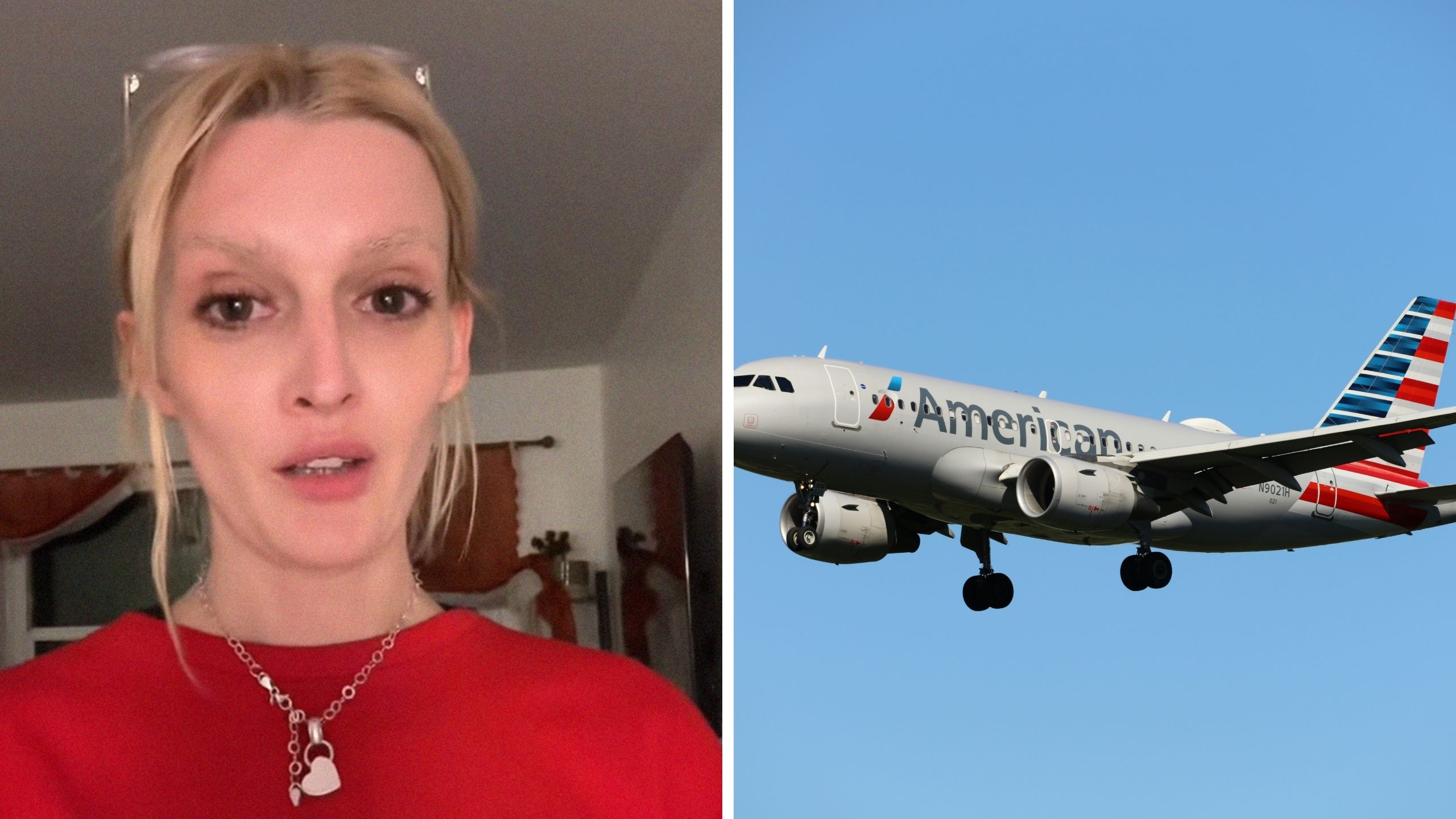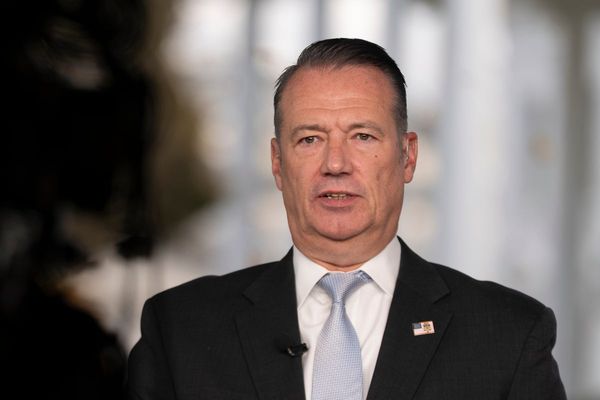
There’s having a rough flight, and then there’s what actor and filmmaker Tara Rule (@tara_rule) says happened with American Airlines.
The New York–based disability rights advocate shared a multi-part saga on TikTok about her round trip between New York and Los Angeles.
The flights started with a first-class flight she says was filthy and ended with suspected E. coli—and continuing with a return leg where, she says, flight attendants refused to help her stow a carry-on despite her disability.
The backstory
In earlier videos, Tara says her mom booked first class so she could recline—something she needs because of Ehlers-Danlos syndrome.
The seat, she says, was broken and wouldn’t recline. She also called the cabin dirty and shared photos of it in the video.
After she complained, customer service initially offered 10,000 miles; she declined. A higher-up later called and, according to Tara, promised a full refund if she completed the round trip.
She agreed after being told she’d have an “A-plus experience” on the way back.
‘You’re going to have to ask a stranger’: the return flight
Tara starts the video by showing her bruised hand and calling it her “American Airlines update.”
The supposed “A+” flight began with delays and four separate gate changes. Tara notes that she always informs staff in advance about her condition, Ehlers-Danlos syndrome.
She doesn’t use a wheelchair anymore but still needs accommodations, like help with her bag. At the gate, she reminded the crew she might need assistance.
On board, she says she told flight attendants, “I have a disability. I can’t put the luggage over my head right now.” One reportedly responded, “We don’t do in-flight hospitality or personal services.”
When she explained again, another told her, “You’re gonna have to ask a stranger.”
Feeling pressured by the line of passengers behind her, Tara says she tried to hoist the bag herself.
“I feel a pop, an immediate loud pop, and I’m like, damn. Dislocated or subluxed. I immediately drop this heavy thing. I’m [expletive] humiliated.”
That’s when another traveler stepped in: professional volleyball player Logan Webber. Tara says he was tall enough to lift the bag with ease, sparing her from a worse injury.
Later, she asked the crew at the desk what she could do in the future to guarantee accommodations. According to her, the response was the same: if she couldn’t lift her bag, she should either “find a different way to travel” or “ask a stranger.”
The recording and what the staff told her
Tara later shared audio of a calm, extended exchange after the flight. She opens with, “Hi, I just had a question. For next time I fly… I have a disability… the flight attendant told me they can’t help with that, so I didn’t know… do I have to do something in advance next time?”
The employee replies, “We only have limited options. You can check in the bag… Or you can ask whoever is behind you to help you with that. The flight attendants are… not permitted to lift anything up in there.”
When Tara asks if that policy is new, the employee answers, “No.”
Tara explains she can’t always check the bag because of emergency medications. The employee says, “No, that’s fine,” and later repeats, “You’re literally just gonna have to ask a stranger to pick it up for you.”
Tara recounts being told, “We don’t want our flight attendants to get hurt.” She asks whether union rules change what’s required; she later says she looked it up and believes they do not override federal disability rules.
What the ACAA actually requires
Tara frames the dispute as an Air Carrier Access Act issue, pointing to federal rules that bar discrimination against air travelers with disabilities and require assistance during boarding, deplaning, connections—and within the cabin.
The regulations carve out “extensive personal services,” but they do require reasonable assistance with stowing and retrieving carry-ons for passengers with disabilities when it’s safe to do so.
The same framework sets baseline accessibility requirements on aircraft and at airports, from on-board wheelchairs and accessible lavatories on certain aircraft to movable aisle armrests across portions of the cabin.
She also notes the Department of Transportation’s recent enforcement posture, referencing the DOT’s 2024 case against American Airlines over wheelchair assistance. In her view, telling a passenger with documented needs to rely on strangers risks injuries—the very thing she says happened when she tried to lift her bag alone.
American’s follow-up, according to Tara
Tara says an American Airlines representative called again after the incident. She told them, “This is not good, it’s an ACAA violation that did result in some damages and injuries.”
Tarra adds that the airline offered to refund her entire trip. She hasn’t accepted or refused, saying a refund wouldn’t cover potential medical costs because she doesn’t yet know the full extent of her injury.
She also says self-identified American Airlines employees commented on her video, asserting they’re explicitly told not to carry passengers’ bags and that union contracts override the ACAA.
Tara says she empathizes with flight attendants and doesn’t expect them to shoulder heavy lifting; she argues the airline should have a designated person or process to handle in-cabin assistance when a passenger needs it.
@tara_rule @American Airlines (duffle bag is a pos not the suitcase the suitcase rocks) #disability #plane #americanairlines #acaa #ehlersdanlos ♬ Chopin Nocturne No. 2 Piano Mono – moshimo sound design
Comments erupt: ‘This is a lawsuit’
Viewers poured in with support and their own readings of the rules. “Pretty sure legally they have to accommodate you,” one said.
“This is a lawsuit,” one person wrote. Another, identifying as a flight attendant, said, “That’s actually totally illegal for them to do…. The ADA and DOT LITERALLY REQUIRE US to accommodate individuals with disabilities. REGARDLESS OF THE AIRLINE! No, we aren’t allowed to lift people’s bags UNLESS they are disabled. Then we’re required!!!!”
Others focused on the setting: “Wait, you had a first class ticket and they refused to help you put your luggage in the above storage compartment….. that is wild…”
One viewer added, “Oh honey I’m so sorry. You have a lawsuit, HUGE lawsuit.”
Another asked, “Don’t they ask for disabled ppl to board first? Surely that’s to help them with their boarding process,” while a different commenter said, “I have never heard of a flight attendant not helping with bags…”
And one more wrote, “I’ve LITERALLY never been on a flight where a flight attendant was not responsible for helping guests get their luggage into an overhead compartment. it’s time for a lawsuit.”
The Mary Sue has reached out to both Tara and American Airlines via email for official comment.
Have a tip we should know? [email protected]







